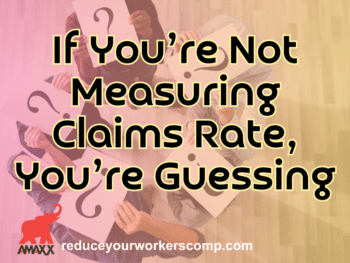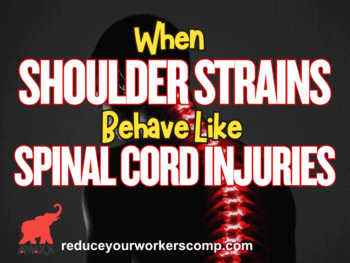Using a Functional Capacity Evaluation (FCE) as part of defending a workers’ compensation claim can reduce exposure on your claim and save money to the program. This is especially important in high exposure cases such as matters with significant disability, retraining claims and those instances where the employee is seeking permanent total disability benefits. Part of this process is timing the FCE correctly and coordinating it with other defense experts.
Functional Capacity Evaluations in Injury Cases
Employers and insurers started using FCEs in the 1980s to assess the functional ability of injured workers in disputed workers’ compensation claims. FCEs have developed over the years and become essential in reducing costs and promoting the resolution of complex issues. It includes a number of different components and are performed by experts with a background in industrial rehabilitation, social work, and other human resources.
Click Link to Access Free PDF Download
“How Do I Get My Adjusters To Follow My Account Handling Instructions?”
During the course of the FCE, the injured worker is required to perform a series of physical and cognitive tests. These specialized tests are used to assess the types of physical functions a person can perform post-injury. It also measures their endurances, resilience and transferable job skills to move into a different line of work if return to the pre-injury position is not possible. The final product is an assessment, coupled with findings and opinions within a reasonable degree of vocational certainty about return-to-work ability.
Should an FCE Be Used in Every Workers’ Compensation Case?
Not every case requires the use of an FCE. FCEs are typically used in cases where the functional ability is in dispute. This includes instances where the injured worker is claiming that he or she is not able to return-to-work given their restrictions, education and vocational experiences and transferrable jobs skills. Examples of cases that one should consider using an FCE include claims for retraining benefits or instances where the employee is seeking permanent total disability (PTD) benefits. They can also be used where there are significant disputes regarding work restrictions or cognitive impairments (TBIs, head injuries, etc.)
Other Factors to Consider Before Scheduling a FCE
Prior to scheduling a FCE, it is important to evaluate where the employee claims to be in the healing process. If the employee will likely require additional medical care, having them undergo a FCE will not benefit the defense of a claim. A FCE can be useful if there is a suspicion the employee is malingering. Functional testing with the correct vocational expert can detect symptom magnification. The results can also be used with a credible independent medical examination report to promote a prompt settlement or advance litigation toward a favorable result.
FCEs can also be useful in cases where the injured party suffers from co-morbid conditions. Such conditions include high blood pressure, hypertension, diabetes and obesity. In these instances, the non-work related condition may be the real barrier to the claimant from gainfully employment.
Picking the Right Expert
Picking the correct expert to conduct a successful FCE contains similar steps to selecting an acceptable independent medical expert. There are a number of important factors to consider. These include the vocational experts:
- Education, training and background;
- Professional reputation; and
- Their professional mannerisms and ability to write a credible FCE report and provide believable testimony.
Author Michael Stack, Principal, COMPClub, Amaxx LLC. He is an expert in workers compensation cost containment systems and helps employers reduce their work comp costs by 20% to 50%. He works as a consultant to large and mid-market clients, is co-author of Your Ultimate Guide To Mastering Workers Comp Costs, a comprehensive step-by-step manual of cost containment strategies based on hands-on field experience, and is founder of COMPClub, an exclusive member training program on workers compensation cost containment best practices. Through these platforms he is in the trenches on a working together with clients to implement and define best practices, which allows him to continuously be at the forefront of innovation and thought leadership in workers’ compensation cost containment. Contact: mstack@reduceyourworkerscomp.com.
©2016 Amaxx LLC. All rights reserved under International Copyright Law.
Do not use this information without independent verification. All state laws vary. You should consult with your insurance broker, attorney, or qualified professional.





























I have just started a new job and because I have degenerative disk disease and arthritis I have chronic back pain as a result. I currently get cortizone shots and am also working with and qualified with the work force center in minnesota for their program to help people with disabilities of all kinds. They had to review my medical records in order to qualify. I am trying to get a restriction letter from my Dr. with regards to lifting and standing to long and they said they cannot do that without a workmans comp claim. This is not a workmans comp claim as my illness is not work related. Can a functional capacity test be done for non workmans comp? How would I go about getting it done and would my insurance pay for it or is there no such test or way of getting a letter of restriction. When in between cortizone shots I am in severe pain until I can get more and are only allowed 3 per year.